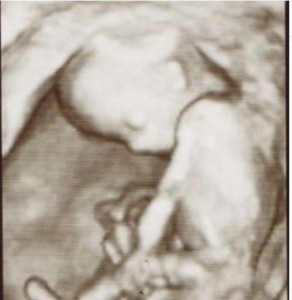Staying Active and Fit While Pregnant Will Make You (and Your Child) More Athletic, Healthy, and Smart.
Ah you’re pregnant (or wanting to become pregnant, or know someone who is) and worried about fitness and diet (as most mothers are). Today, an increasing number of females are active (recreationally and/or competitively), and during pregnancy they want to remain physically active but wonder how it will affect their pregnancy and the baby. You may even be one of the rising women who were previously sedentary and had never done or considered doing much activity, but now that you’re pregnant you want to know how to properly do it for the health of your growing baby. Well, good news, I am here to dispel some rumors and myths about being fit and pregnant and help you endure the easiest, fittest pregnancy you’ve ever had. After reading this I will convince you why it is so important not only for your own health and happiness — before, during, and after pregnancy — but also your baby’s health (before, during, and after birth!).
Now I’ll be honest….giving birth was NOT EASY, but being pregnant, on the other hand, sure was! For me, being pregnant did not disrupt any of my life. During both of my pregnancies I remained active, healthy, and strong. I went on with life as normal and, as a result, had excellent pregnancies and excellent recoveries.
Now, let’s get to the evidence and explanations of why you should exercise during pregnancy!
Doctors and Research Recommend Exercise During Pregnancy
First off, just to dispel any rumors, exercise during pregnancy is highly recommended! All well-respected journals in pregnancy, gynecology, obstetrics, and health and fitness strongly recommend exercise during pregnancy. For quite some time now, research (from 1985-present) has shown exercise in pregnancy to be quite beneficial.
Exercise for Your Baby’s Future

Not only is being and staying active and healthy great for you and your body, it turns out it is also excellent for your growing baby as well. A growing number of studies support the idea that physical exercise is a factor that might lead to increased physical and mental health for your baby later in life. It has positive effects on cognition and brain function at the molecular, cellular, and behavioral levels. Researchers have found a link between in utero experience and later metabolic and cardiovascular disease, implying genetics and patterns are passed on to the fetus in utero. In other words, you can set your baby’s genes up for a lifetime of healthiness just by being active yourself. Women who are the most physically active have the lowest prevalence of gestational diabetes, obesity, and type 2 diabetes in both mother and child. Also, studies reveal lifestyle choices themselves may have a prenatal origin, that a child’s sedentary behavior, obesity, and eating patterns are determined by the prenatal environment it experienced in the womb.
Benefits of Exercise for the Pregnant Mother

Beginning early on in pregnancy, relaxin (a hormone that helps your whole body loosen up for pregnancy) softens and stretches connective tissue, resulting in an instability of ligaments and joints and an increased risk of sprains and strains. To add, your enlarging uterus, breasts, and growing fetus shift your center of gravity, resulting in balance problems, increased lumbar lordosis (sway back), and greater strain on your lower back and hips. In addition, any weight gain may place additional stress on your joints and make movement more difficult. Thus exercise during pregnancy becomes crucial to counter these negative effects by enhancing muscular strength, endurance, flexibility and cardiovascular health.
Exercise during pregnancy offers:
- Fewer physical discomforts (e.g., fatigue, nausea, leg cramps, backache, constipation, round ligament pain, shortness of breath)
- Decreased incidence of operative delivery, gestational hypertension and preeclampsia
- Improved blood glucose control in gestational diabetes
- Shorter active phase of labor
- Improved self-esteem and body image
- Decreased stress and anxiety
- Improved sleep
- Less isolation from non-pregnant peers
- Increased placental weight, blood flow
- Maintenance or improvement of fitness level
- Less likelihood of excessive weight gain
- Fewer stretch marks
- Improved posture
- Faster postpartum recovery
Exercise is a clear winner! But what do you do? How do you do it? How often? Are there exercises a pregnant mommy should avoid? Check out my next post for the all the answers!
Next post:
Staying Fit Through Pregnancy, Part Two: EXERCISE Your Complete Guide on How to Exercise While Pregnant
Photo Credits: Tamarindo Family Photos
🙂



